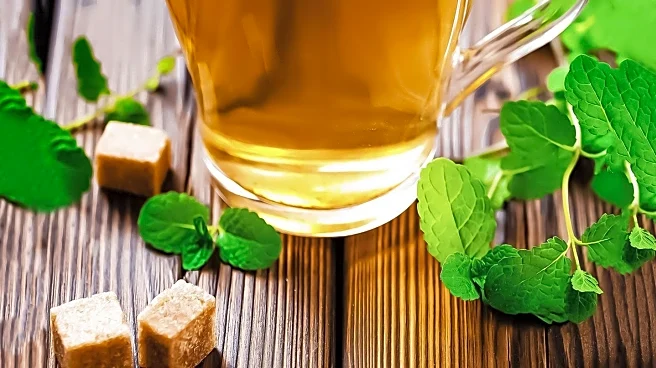What's Happening?
Recent studies have highlighted the health benefits of certain herbal teas in managing cholesterol levels and supporting heart health. According to research published in the Journal of Public Health in Africa,
consuming rooibos tea has been shown to improve lipid profiles, lower blood glucose levels, and enhance antioxidant status in the body. Additionally, hibiscus tea has been identified as a potent natural remedy for heart health. A clinical trial involving 65 patients with mild hypertension revealed that drinking three cups of hibiscus tea daily for six weeks significantly lowered systolic blood pressure levels. These findings suggest that the antioxidant properties of hibiscus tea may contribute to lowering cholesterol and blood pressure.
Why It's Important?
The implications of these findings are significant for public health, particularly in the context of cardiovascular disease prevention. Herbal teas like rooibos and hibiscus offer a natural, accessible means to support heart health, potentially reducing the need for medication in managing cholesterol and blood pressure. This could lead to a decrease in healthcare costs and improve quality of life for individuals with cardiovascular concerns. The widespread availability and affordability of these teas make them an attractive option for individuals seeking to improve their heart health through dietary choices.
What's Next?
Further research may be conducted to explore the long-term effects of herbal tea consumption on heart health and to identify additional teas with similar benefits. Healthcare providers might consider recommending these teas as part of a comprehensive approach to managing cardiovascular health. Public health campaigns could also promote the inclusion of herbal teas in daily diets as a preventive measure against heart disease.
Beyond the Headlines
The growing interest in herbal teas reflects a broader trend towards natural and holistic health solutions. This shift may influence consumer behavior, leading to increased demand for herbal products and potentially impacting the tea industry. Additionally, the cultural significance of tea consumption in various societies could play a role in the acceptance and integration of these health practices.









